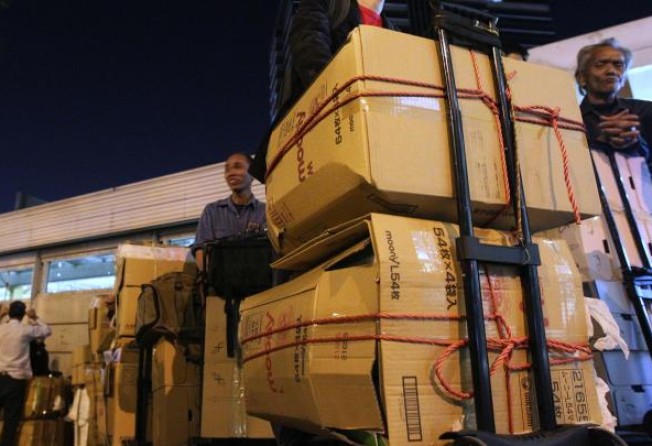
Move to protect Hong Kong milk formula stocks by making it 'reserved commodity'
Government examines proposal to make infant milk a 'reserved commodity' to combat inflated prices and shortages caused by parallel trading

The city is considering making infant milk formula a "reserved commodity" after executive councillor Regina Ip Lau Suk-yee floated the idea to restrict exports and ensure local needs are met.

She suggested each traveller could carry only two cans of milk powder when leaving the city.
"When there is a shortage of an essential food on which Hong Kong relies heavily on imports, there should be more regulation of price and stabilisation of supply," she said yesterday.
Meanwhile, Chief Secretary Carrie Lam Cheng Yuet-ngor yesterday chaired an inter-departmental meeting to discuss how to secure a steady supply of baby milk formula for local mothers.
The Commerce and Economic Development Bureau said: "We know about [Ip's] suggestion and will conduct an internal study of it."
Currently, the city's sole reserved commodity is rice. The government applies controls to ensure a stable supply and to keep a reserve stock sufficient to feed the public for 15 days in case of emergencies or shortages.
In the fourth quarter of last year, Hong Kong kept 12,300 tonnes of rice in reserves under the Reserved Commodities Ordinance - in place since the 1950s.
Frozen meat and poultry used to be reserved commodities, said Ip, also a New People's Party lawmaker. She said that once an item was marked as a reserved commodity, the government could set a price ceiling and restrict imports and exports of the product.
That would counter pharmacies that reportedly reserved baby formula to sell at higher prices to mainlanders. "The government bears a responsibility to push down prices of goods where necessary," she said.
Once the Chief Executive in Council approved the addition to the ordinance, the measure would take immediate effect, she said. The Legislative Council could vote on it at a later stage.
Ip declined to say whether the weekly Exco meeting yesterday dealt with her proposal.
Before the meeting, however, Chief Executive Leung Chun-ying said: "We hope to ensure that milk powder can be more conveniently delivered to mothers and babies [in a] joint Hong Kong-mainland effort."
Tourism Board chairman James Tien Pei-chun said the government should distinguish between real tourists and parallel traders. He suggested limiting multi-entry permits for mainland arrivals to one visit a day.
National People's Congress Standing Committee member Rita Fan Hsu Lai-tai said Hong Kong retailers should improve their order-placing mechanism so as to accommodate local and mainland demands.
On Monday, police and customs officers arrested 48 people, among them 45 mainlanders, near Sheung Shui MTR station and seized HK$210,000 worth of smartphones, daily necessities and cosmetics in a crackdown on parallel goods trading.
Additional reporting by Clifford Lo